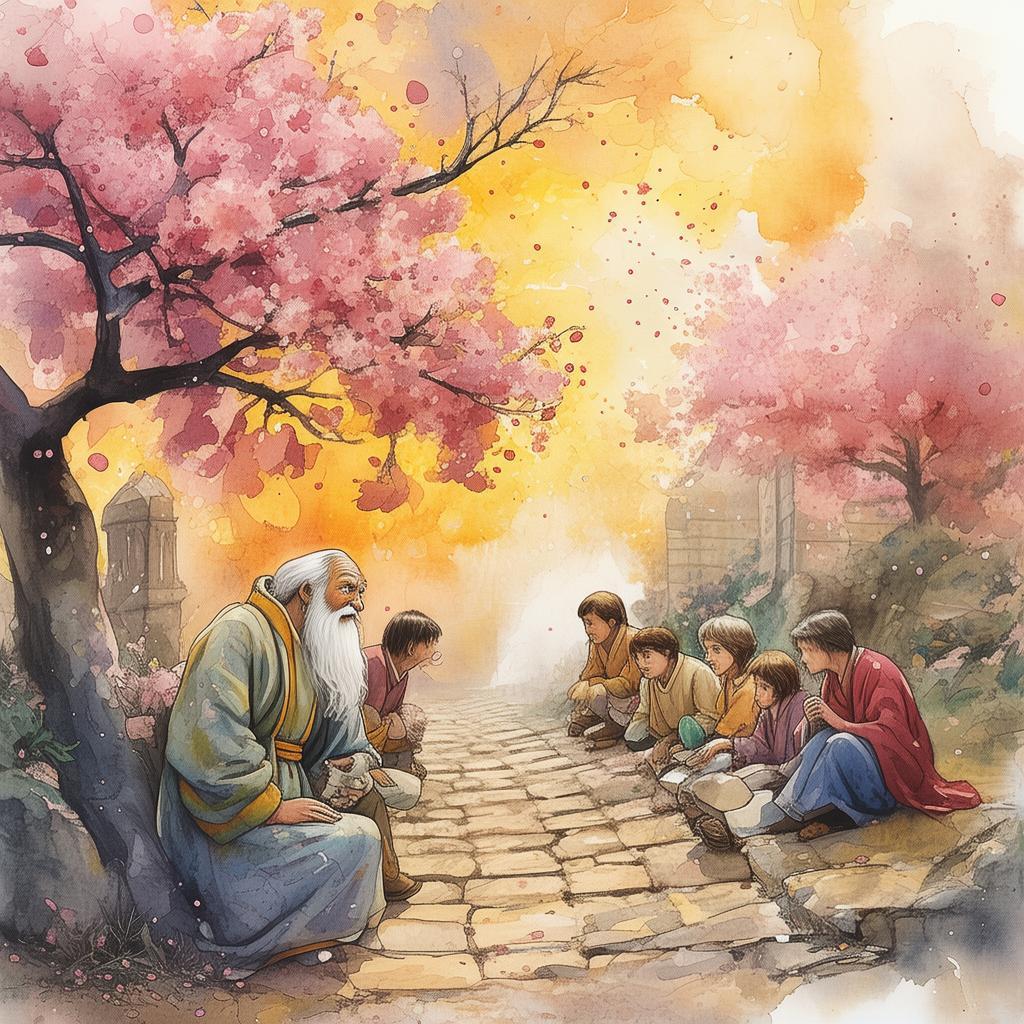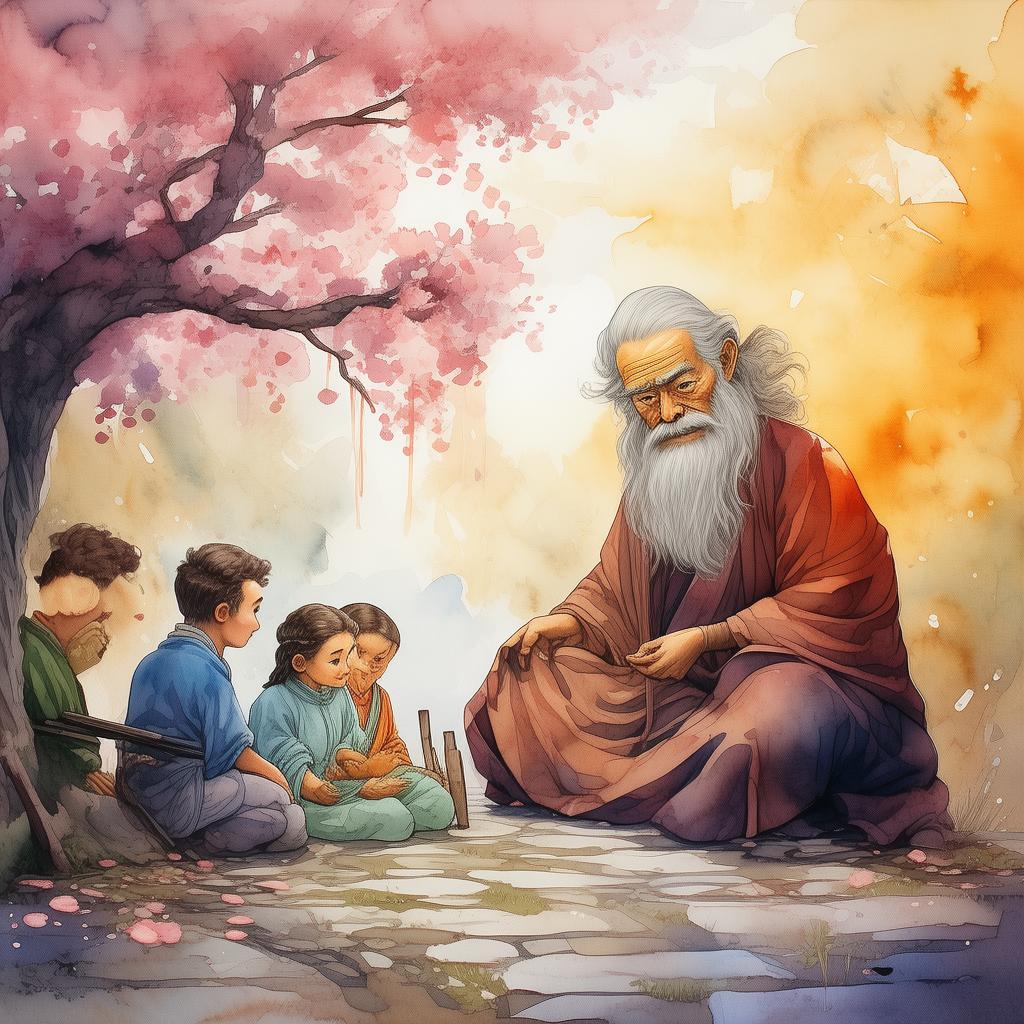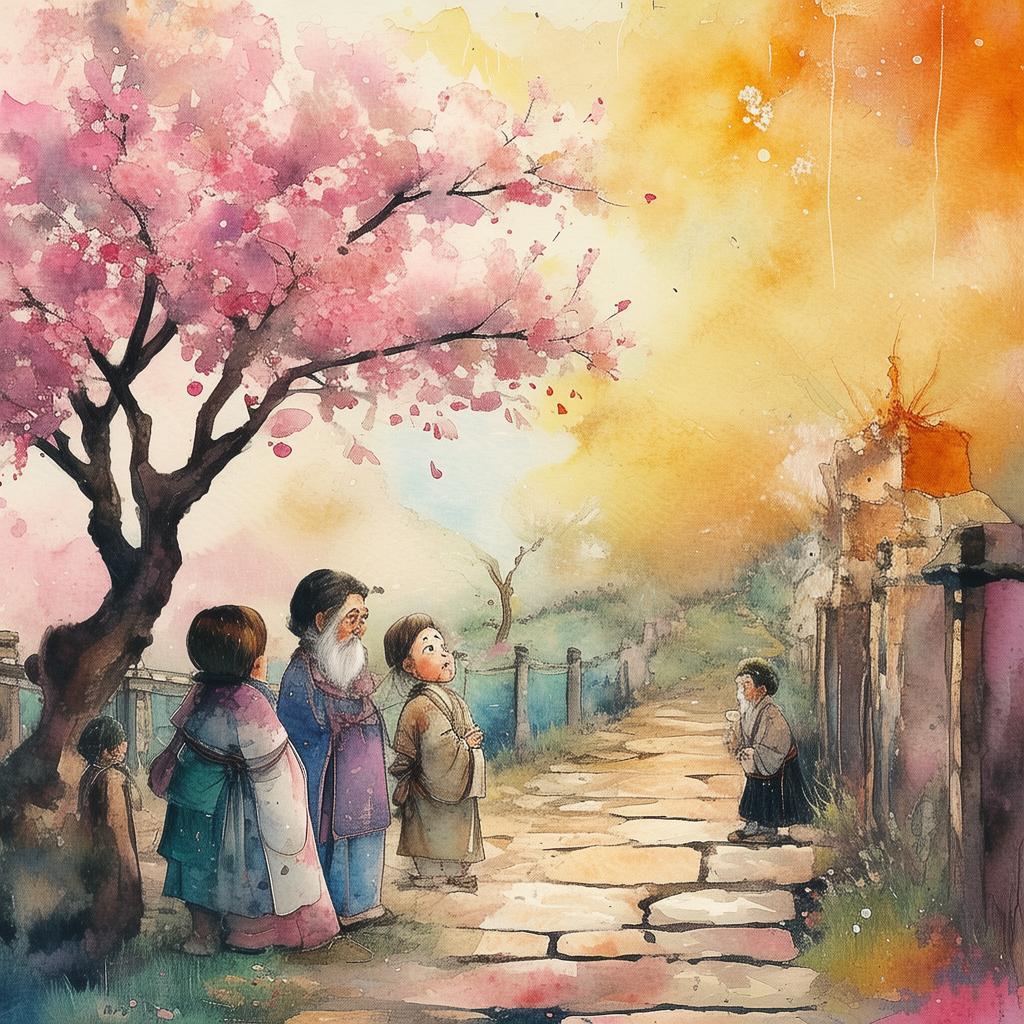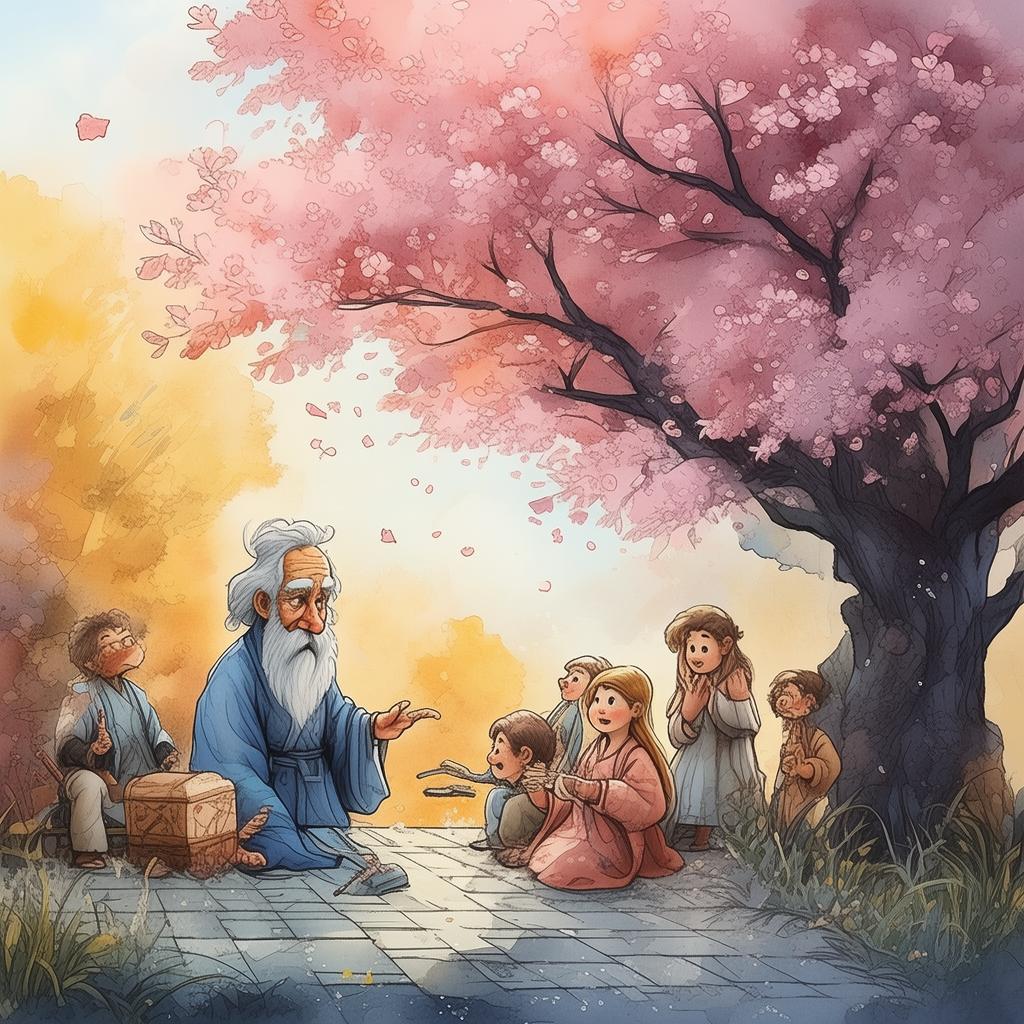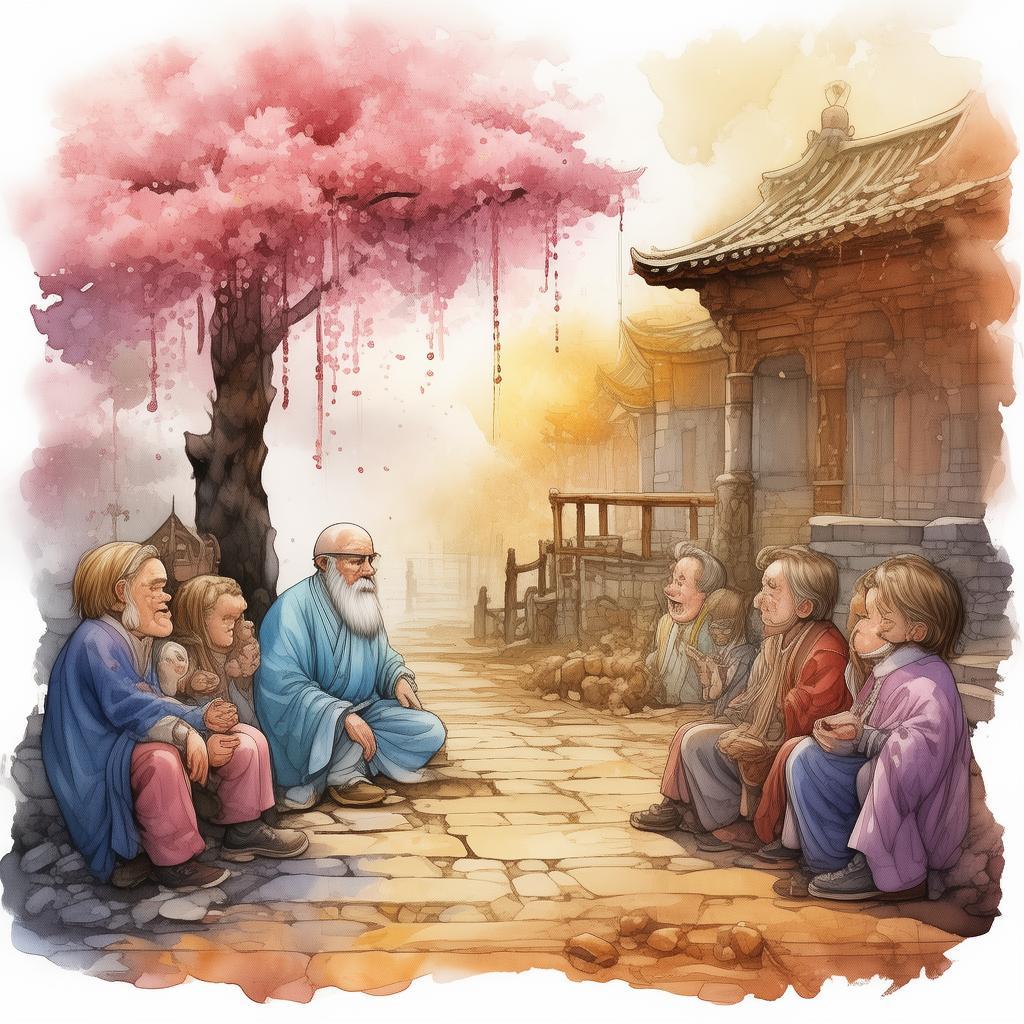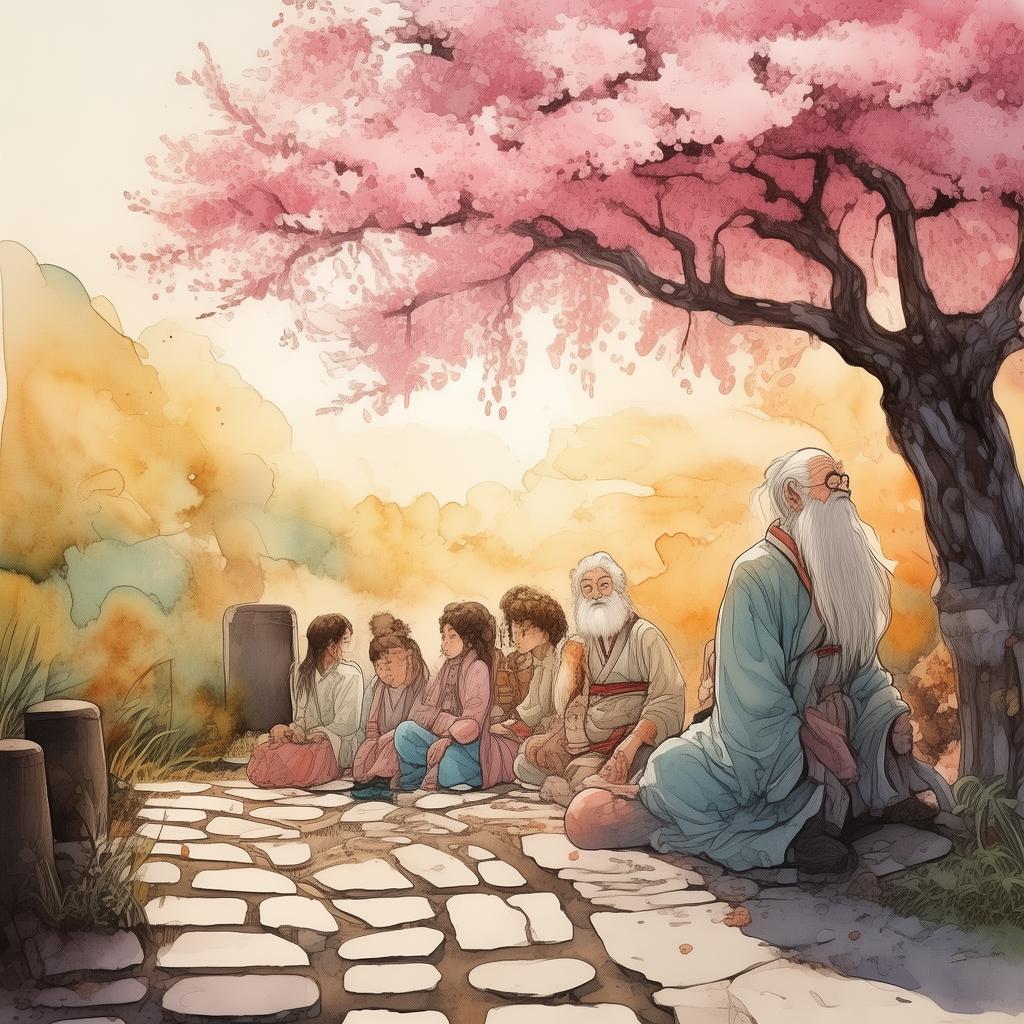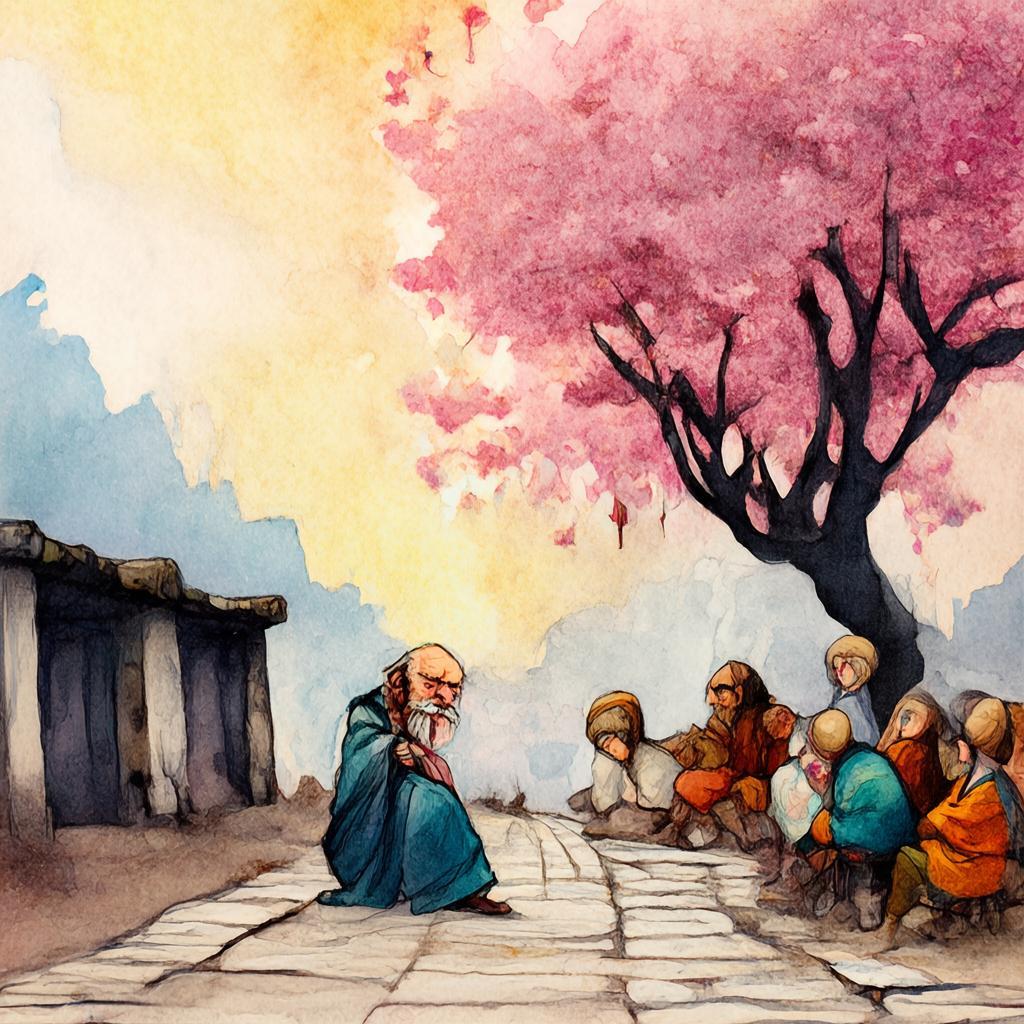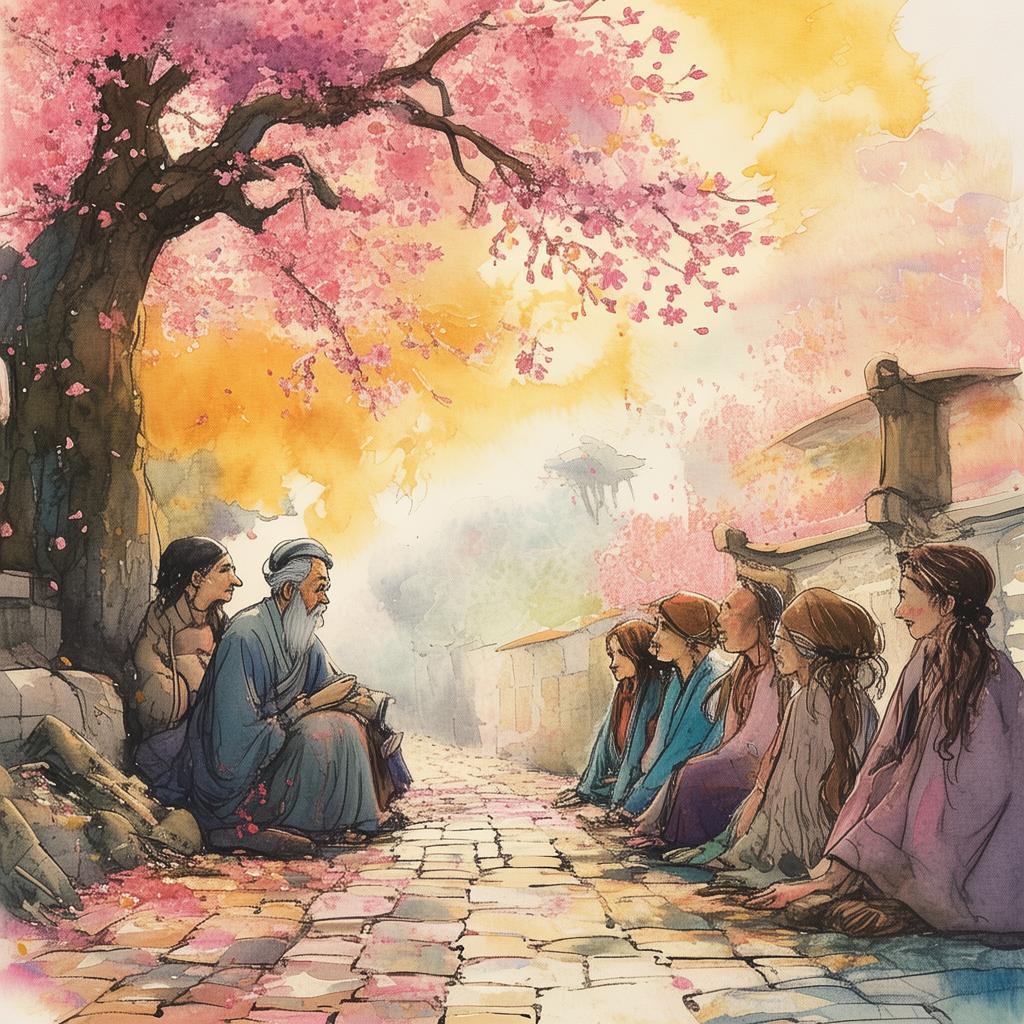Whispers of the Vanishing Spring
In the heart of ancient China, during the bloom of spring, a young poet named Lin Wei wandered the streets of his beloved city, Chang'an. His heart was heavy with the weight of unrequited love. Years had passed since he had last seen his muse, the enchanting Xiao Mei, whose laughter had echoed through the alleys and whose eyes had captured his soul.
Lin Wei was a man of few words, but his melodies spoke volumes. He composed a song, "The Melancholic Melody," which captured the essence of his longing. The tune was so hauntingly beautiful that it seemed to pierce the very fabric of the world, reaching the heavens and the earth.
One day, as Lin Wei sat by the banks of the Grand Canal, a young girl approached him. She was Xiao Mei, or so he believed. Her eyes sparkled with the same warmth and mischief that he remembered, and her voice was as melodious as the notes of his song. They spoke of old times, of shared dreams, and of the love that had once been so fierce.
But as the days passed, Lin Wei noticed a strange change in Xiao Mei. She would vanish at odd hours, leaving behind no trace. Each time she returned, she would apologize, her eyes filled with sorrow. Lin Wei, ever the poet, tried to understand the reason behind her vanishing acts, but she would only whisper, "The time is not yet right."
The townsfolk began to whisper about Xiao Mei, calling her a ghost or a spirit. Lin Wei, however, refused to believe the rumors. He was determined to uncover the truth behind her mysterious disappearances.
One evening, as the moon hung low in the sky, Xiao Mei vanished once more. Lin Wei followed her, determined to find her, no matter the cost. He found himself in a forgotten temple, its walls adorned with ancient carvings and faded frescoes. There, he saw Xiao Mei, but she was not alone. Beside her stood an ancient statue of a woman, her eyes locked on a distant horizon.
Xiao Mei's voice was a mere whisper as she explained the truth. She was not a ghost, but a spirit bound to the temple by an ancient curse. The statue she had been protecting was a relic of the Song Dynasty, a symbol of the dynasty's last hope for survival. The curse was that she could only be freed by a true love that could overcome the passage of time.
Lin Wei, realizing the gravity of the situation, vowed to help Xiao Mei break the curse. He composed a new song, "The Vanishing Spring," which was meant to bridge the gap between the past and the present, between Xiao Mei and the relic. As he sang, the temple trembled, and the statue began to glow with an ethereal light.
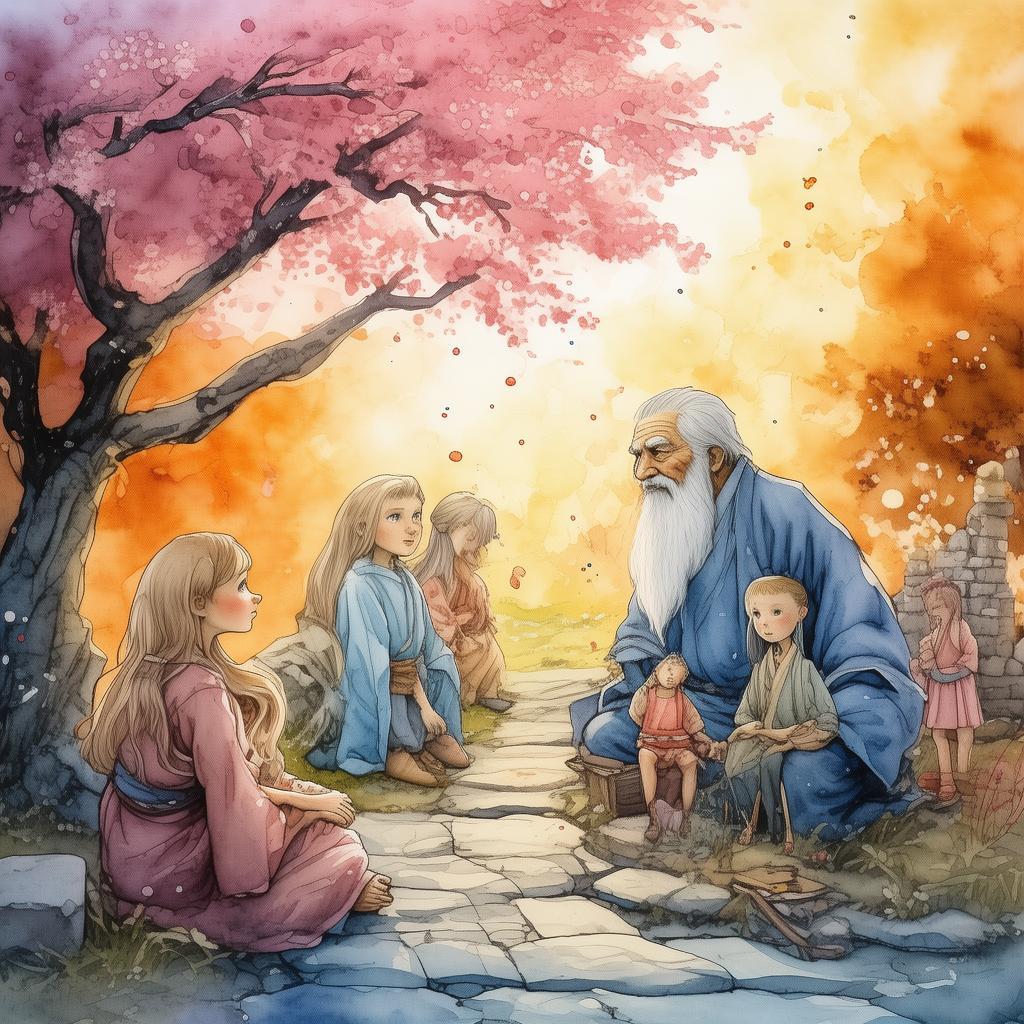
In that moment, Lin Wei understood that true love was not just about the heart, but about the soul. It was about the power to transcend time and space, to connect with the past and the future. As the melody reached its crescendo, Xiao Mei's form began to fade, merging with the relic, and the curse was lifted.
The townsfolk celebrated the breaking of the curse, and Lin Wei's melodies were heard far and wide. But Xiao Mei was gone, her spirit freed, her love transcending the bounds of time. Lin Wei, though heartbroken, found solace in the knowledge that his love had been true and powerful enough to change the course of history.
The story of Lin Wei and Xiao Mei became a legend, a tale of love that defied the laws of time and fate. The Melancholic Melody and The Vanishing Spring were played on every instrument, a reminder that love, like spring, could bloom even in the darkest of times.
✨ Original Statement ✨
All articles published on this website (including but not limited to text, images, videos, and other content) are original or authorized for reposting and are protected by relevant laws. Without the explicit written permission of this website, no individual or organization may copy, modify, repost, or use the content for commercial purposes.
If you need to quote or cooperate, please contact this site for authorization. We reserve the right to pursue legal responsibility for any unauthorized use.
Hereby declared.
